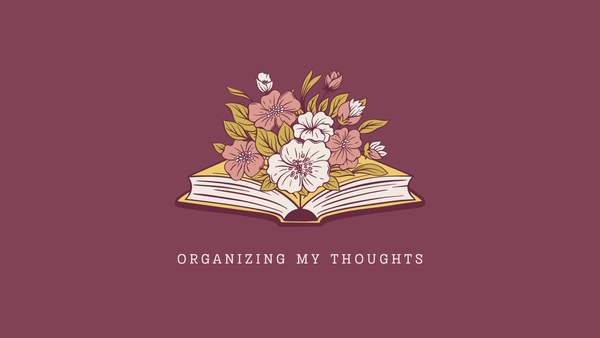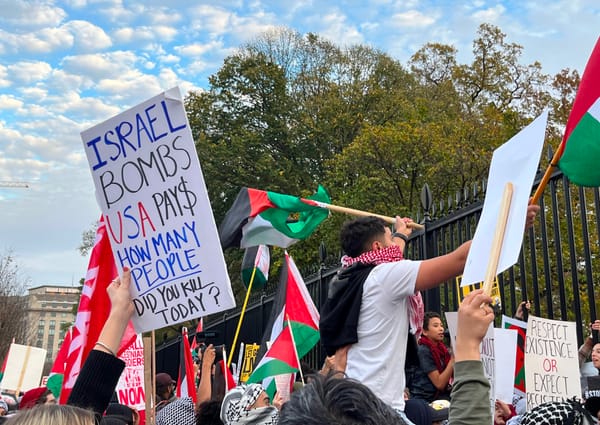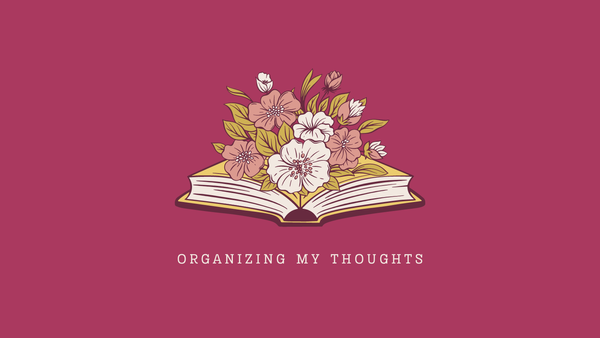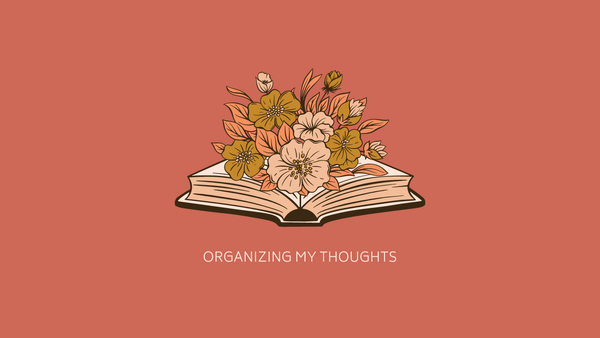The Political Communion of Protest
"Thursday’s action was a reminder of what it means to live in struggle — where hope, love, grief, and refusal converge in a defiant spectacle of love and solidarity."
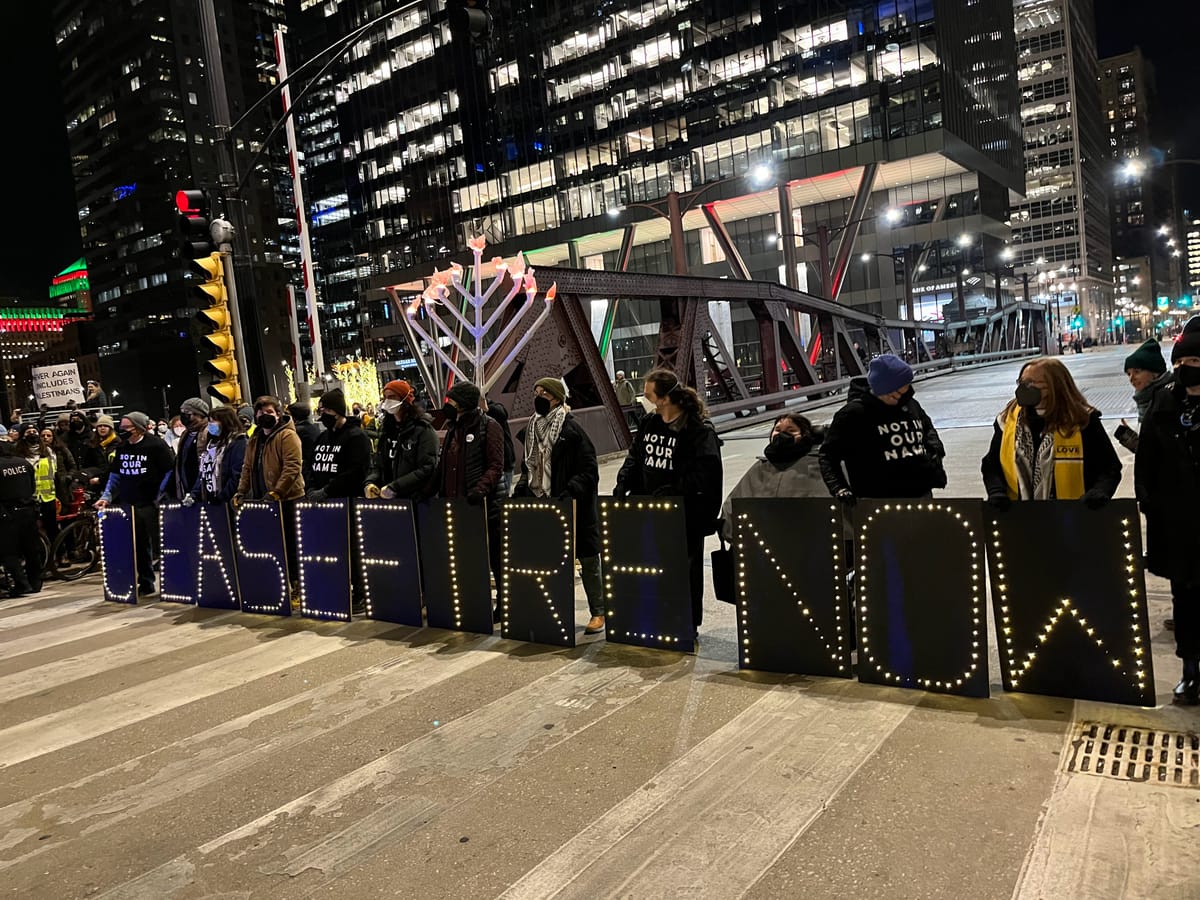
On the last night of Hanukkah, 13 protesters were arrested for blocking the Washington St. bridge, just outside Boeing Building in downtown Chicago. The arrestees and a crowd of more than 300 people who rallied alongside them were demanding a permanent ceasefire in Gaza. The bridge shutdown was one of eight carried out by Jewish Voice for Peace members across the country, with blockades occurring in Seattle, Philadelphia, Los Angeles, Portland, Washington DC, Minneapolis, Atlanta and Chicago. Organizers noted the eight shutdowns represented the eight candles that Jewish people traditionally light on the last night of Hanukkah.
The bridge blockade followed a vigil and musical march hosted by Jewish-led groups Jewish Fast for Gaza, Jewish Voice for Peace Chicago, and IfNotNow Chicago.
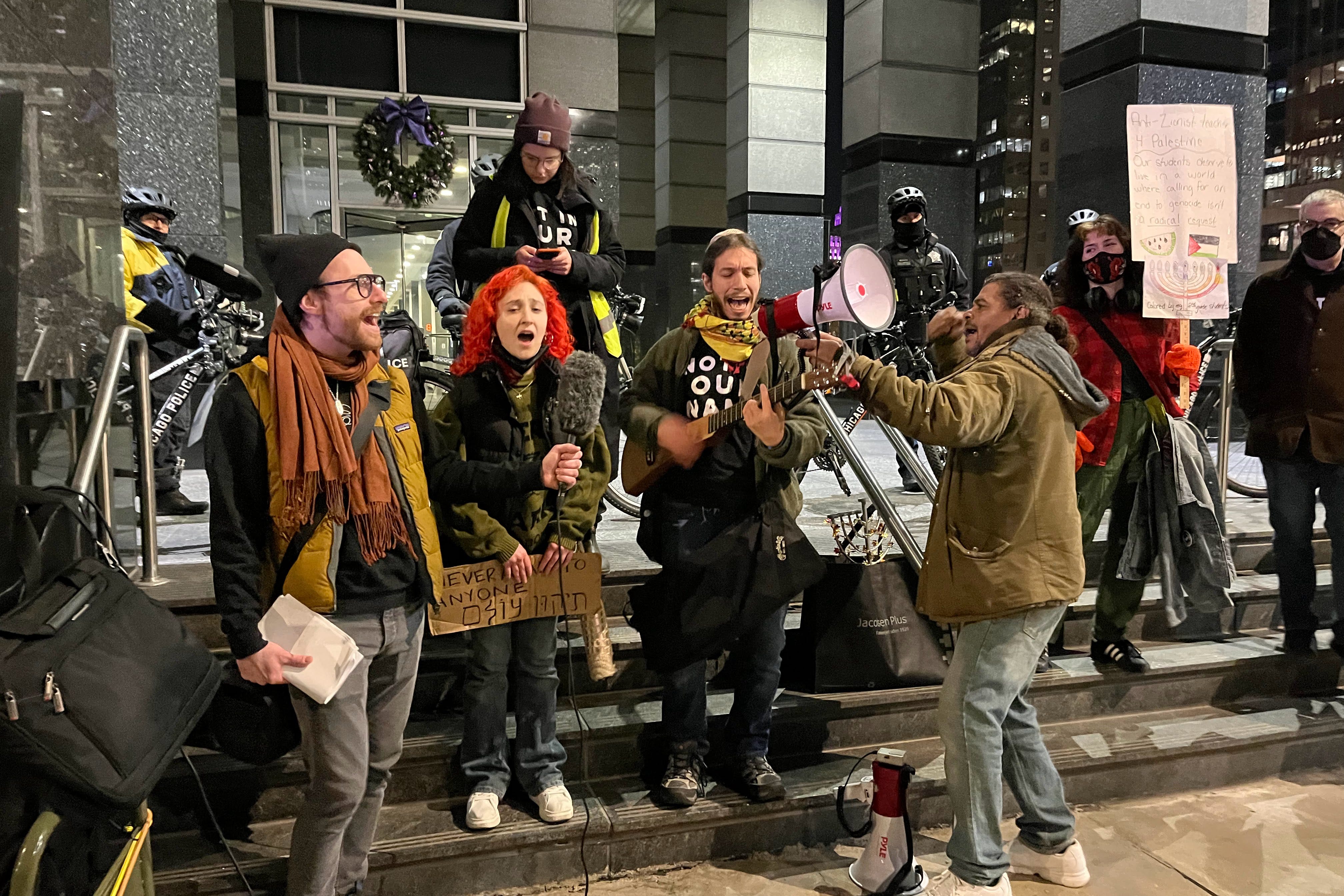
We began the night at Daley Plaza, where protesters rededicated the 31-foot menorah in Daley Plaza to the struggle against Israel’s genocide, apartheid, and occupation of Palestine. I was immediately impressed by the size of the crowd. Working turnout for a protest during a Chicago winter is no small feat, but the crowd was so dense that I struggled to wade through it as I took photos. I was also impressed by the spirit and energy of those present. Participants held signs, electric candles, and menorahs, as they applauded speakers and joined sing-alongs. There were hundreds of people alongside us at Daley Plaza who were visiting the Christkindlmarket — a German-style holiday market that’s a popular attraction in Chicago at this time of year — and I noticed that many shoppers were drawn in by the songs and visuals of the vigil. They had come to the market to shop, eat, and drink, but the songs, prayers, chants, and visuals of the protest grabbed and held their attention. Perhaps it was the pull of something that can’t be bought at a tourist attraction or in any downtown store: a sense of shared meaning and genuine communion with others.
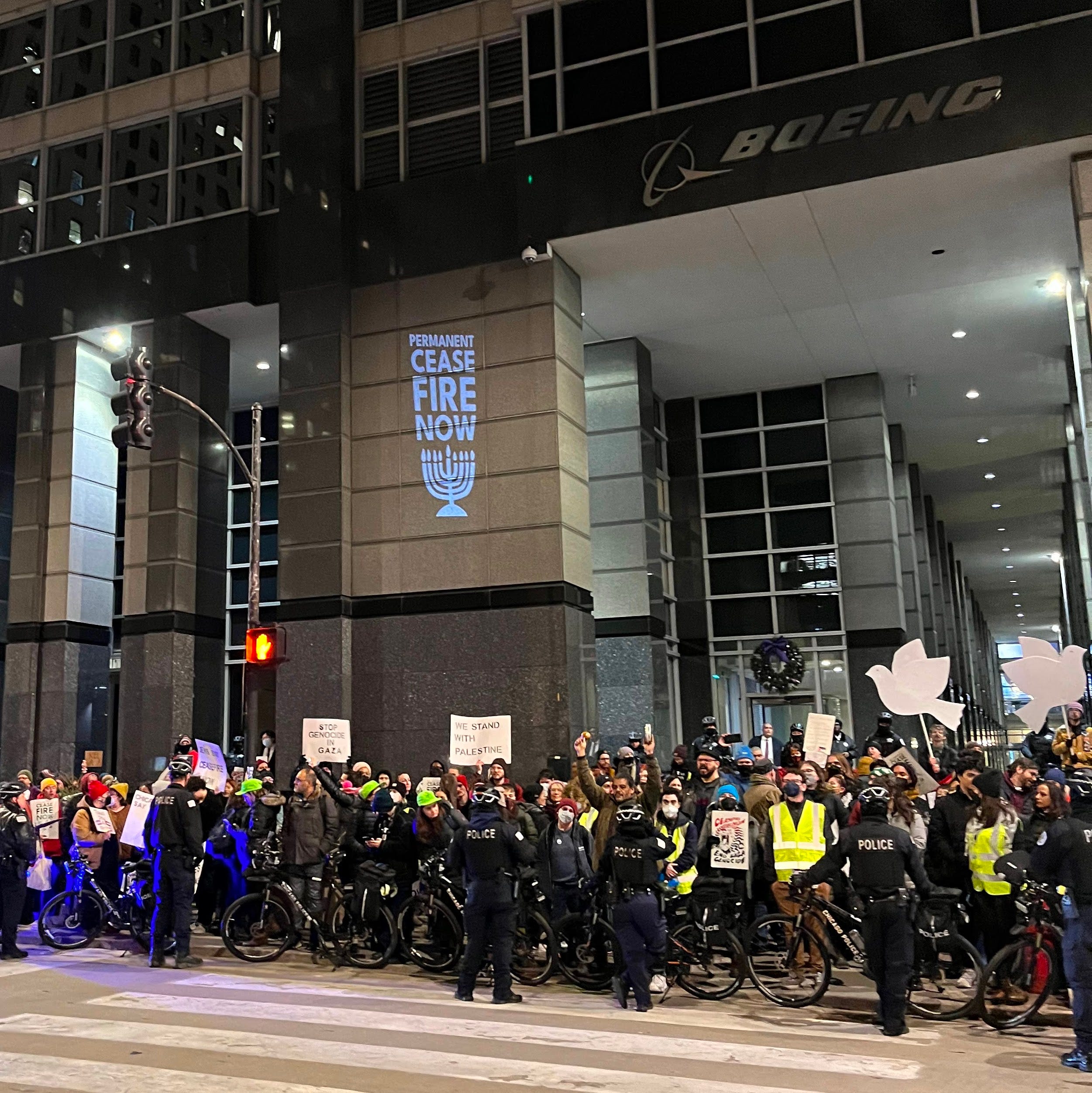
After the vigil, we marched to the Boeing Building and the singing continued. As we rallied outside, the message “Permanent Ceasefire Now” was projected on the side of Boeing, along with an image of a menorah.
This is not the first time I have attended a Hanukkah-themed protest. There is a strong tradition in Chicago around marking December holidays with demands for justice, whether protesters are gathering outside the governor’s mansion to demand freedom for criminalized survivors, or outside the Cook County Juvenile Detention Center to remind incarcerated children that they are loved and will be fought for. This year, many of our communities are focused on the genocide being waged in Gaza, as Israel continues to murder Palestinians with bombs, hunger, thirst, and other forms of violence and deprivation.
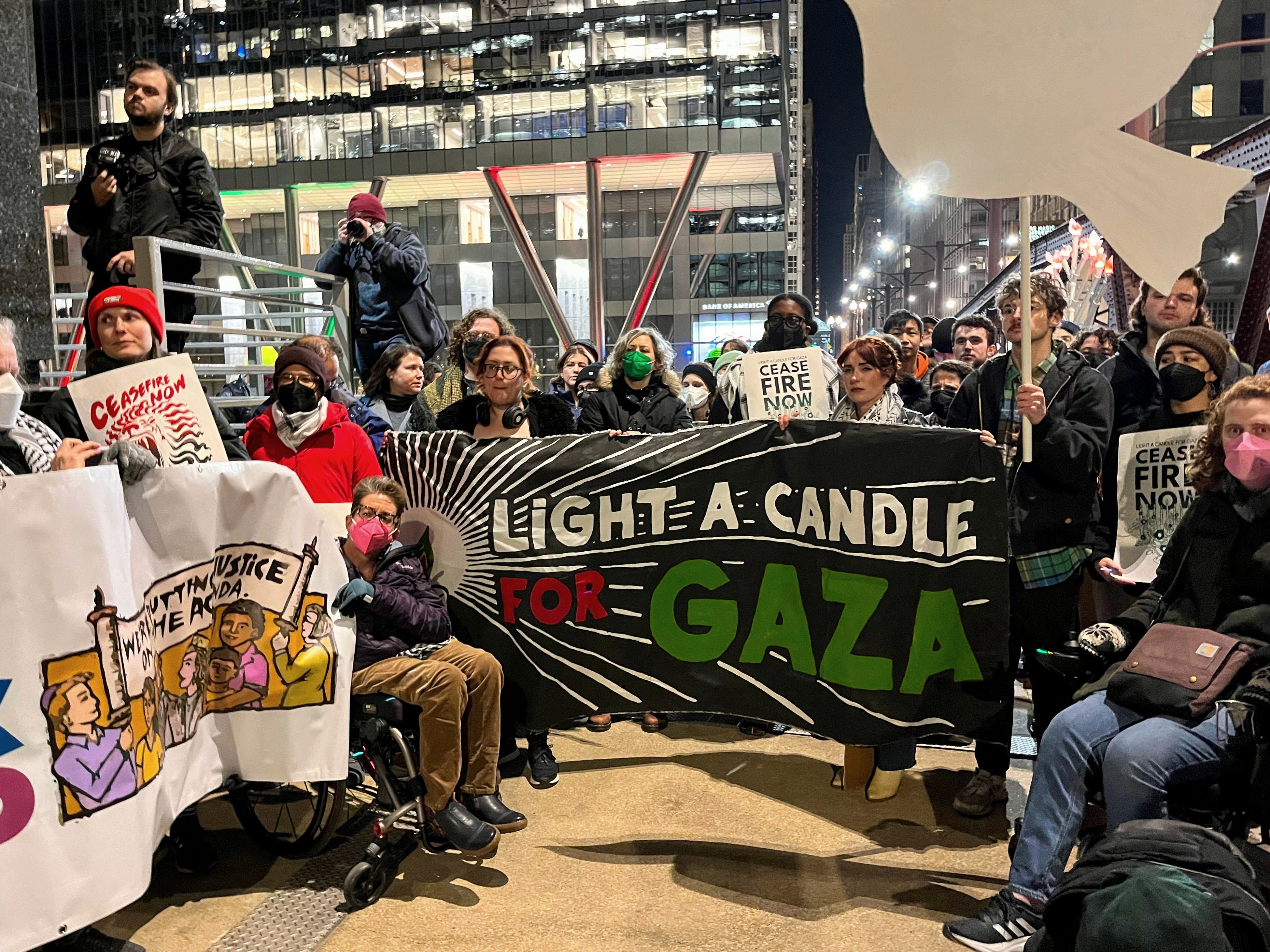
I have heard from many people that it is difficult to engage with the holidays while knowing that these atrocities are ongoing. I can relate to those feelings, and I am grateful for organizers who allow us to embrace the togetherness of the holiday season, along with a sense of solidarity and love for our communities, while also calling for justice. It means a great deal to me to be invited into moments that allow us to honor what is cherished about these occasions while also fighting for what is right.
As my friend Maya Schenwar said during the vigil portion of the event, “We cannot look away” as Palestinians are being slaughtered by the Israeli military. Over 18,700 Palestinians, including over 6,000 children, have been killed by the Israeli military since October 7. Over the last couple of months, I have grappled with the question of how we are supposed to go about our lives while this violence is occurring. I have often commented that nothing feels right to me during these times other than protesting. Thursday’s action was a reminder of what it means to live in struggle — where hope, love, grief, and refusal converge in a defiant spectacle of love and solidarity. When we connect what’s right about our lives and our traditions with our demands for justice, we experience a sense of wholeness.
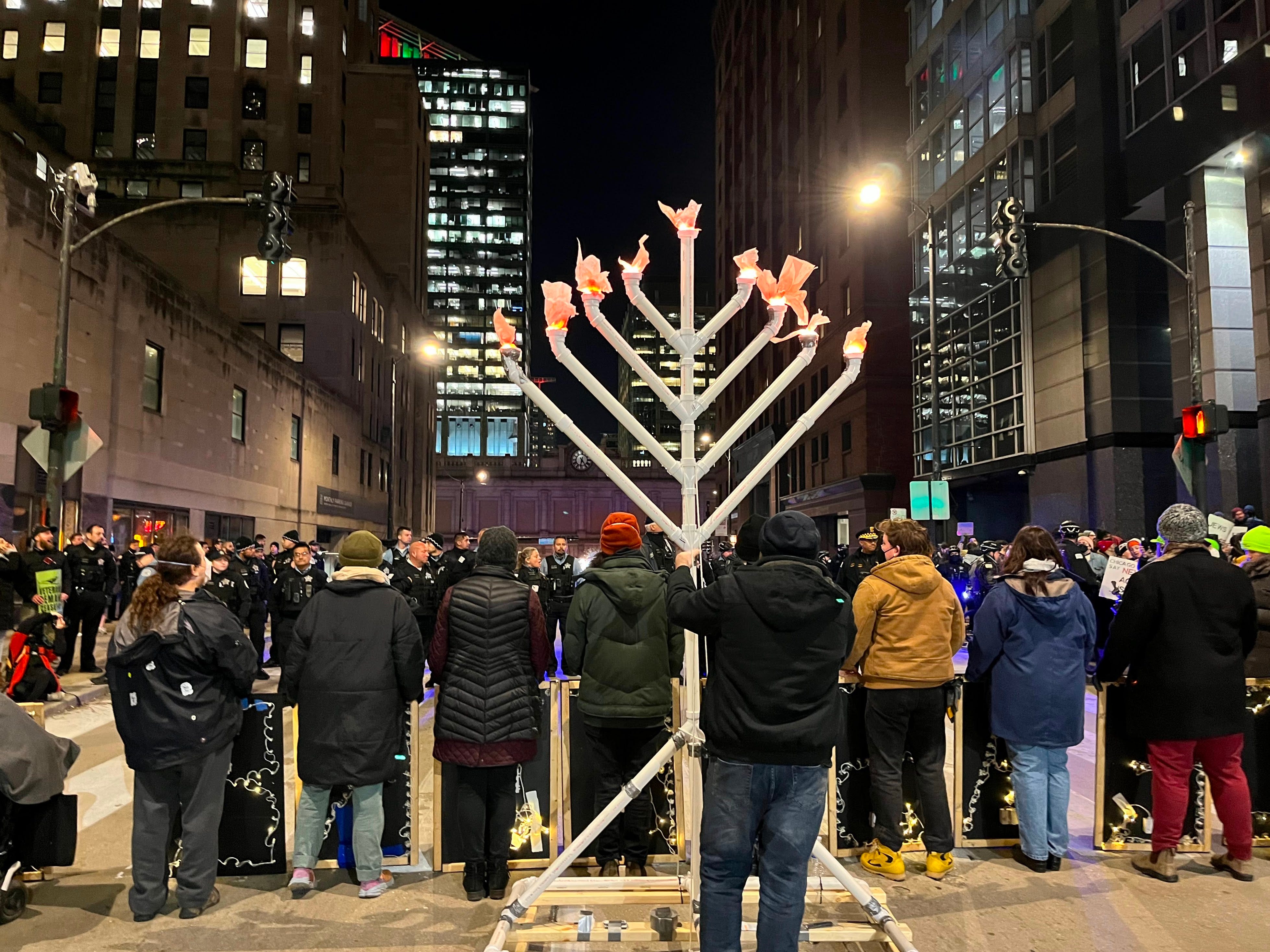
On the last night of Hanukkah, I was reminded that I experience the most peace when demanding peace for others. I also experienced a beautiful, familiar feeling — the sense that I was exactly where I was supposed to be, at the exact moment that I was supposed to be there. I hope you all know the feeling I am talking about. Perhaps you experience it when you are laughing with your dearest friends, comforting your children, or in the embrace of your partner. It’s a feeling I have experienced many times in the context of protest, perhaps because direct action is the closest thing I have to the kind of rituals and traditions that many people enact in their religious spaces. The political communion of protest is my sacred space, and sometimes, it gives us moments when our humanity, our hopes, and our radical demands are fused, and our transformative potential fills the space between us, enlivening and electrifying the streets and plazas we claim.
Palestinian feminist Rana Barakat recently told me that “solidarity is about love” and “finding ways to actually express that love through political connections.” As protesters sang songs in support of the people being arrested Thursday night, I felt like I was experiencing the truth of Barakat’s words in real time.
During the protest, Rabbi Brant Rosen of Tzedek Chicago, co-founder of Jewish Fast for Gaza, led the crowd in traditional Hanukkah prayers to light the candles and called on participants to dedicate the last night of Hanukkah to the demand for a ceasefire. “According to the Hanukkah story, the Maccabees rededicated the Temple in Jerusalem after it had been defiled,” Rosen explained. “By gathering to light the menorah this Hanukkah, we are protesting the defiling of sacred Jewish tradition and Jewish memory by Israel's genocidal war on Gaza. In so doing, we are rededicating ourselves to our solidarity with the Palestinian people–and all oppressed people struggling to be free.”
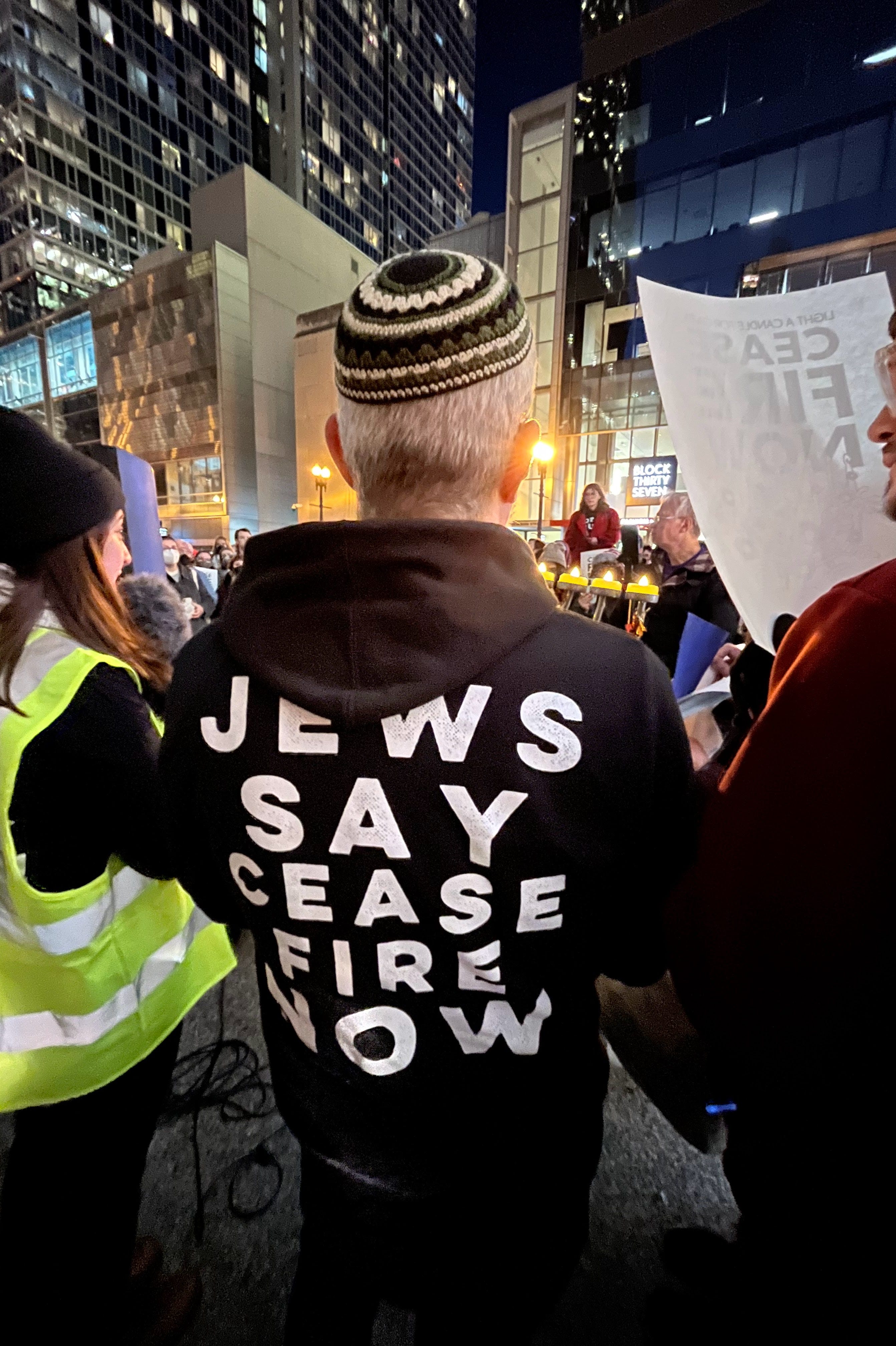
Rosen’s words capture so much about what it means to hold something sacred and to fight for the sacredness amid systems that would demean and defile our humanity and our traditions by urging us to enact normalcy and think only of ourselves during a time of genocide. As someone who has no particular faith, I nonetheless shared in that rededication that Rosen spoke of. In the lighted letters of the blockade, in the projection of the words “Permanent Ceasefire Now,” and in the chanting and singing of so many friends and strangers, I felt whole. There was a sense of renewal in the air, of connection, and of hope. Amid the horror of what brought us together, I was reminded of our love and our power. My heart was lifted and my hopes renewed. What greater gift can one receive in such times?
May we all find the communion and solidarity we need in these times, and may we press on together until the violence ends and Palestine is free.
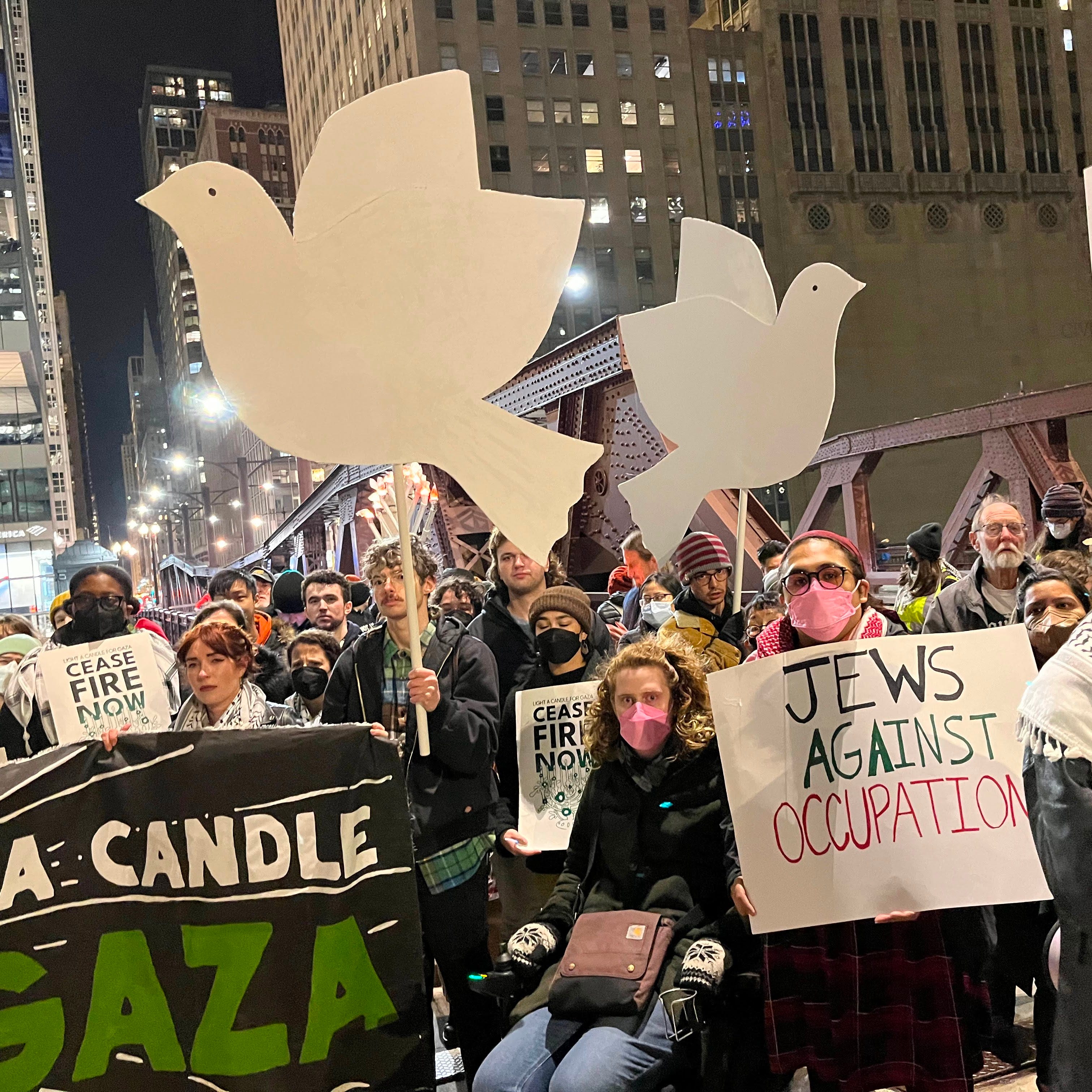
Author’s Note: I am still on a work break, but as I’ve mentioned, I sometimes can’t keep my thoughts to myself.
Organizing My Thoughts is a free newsletter. If you can and would like to pay for a subscription, your support is greatly appreciated. Paid subscribers will be invited to periodic virtual conversations with Kelly and other writers and organizers.

